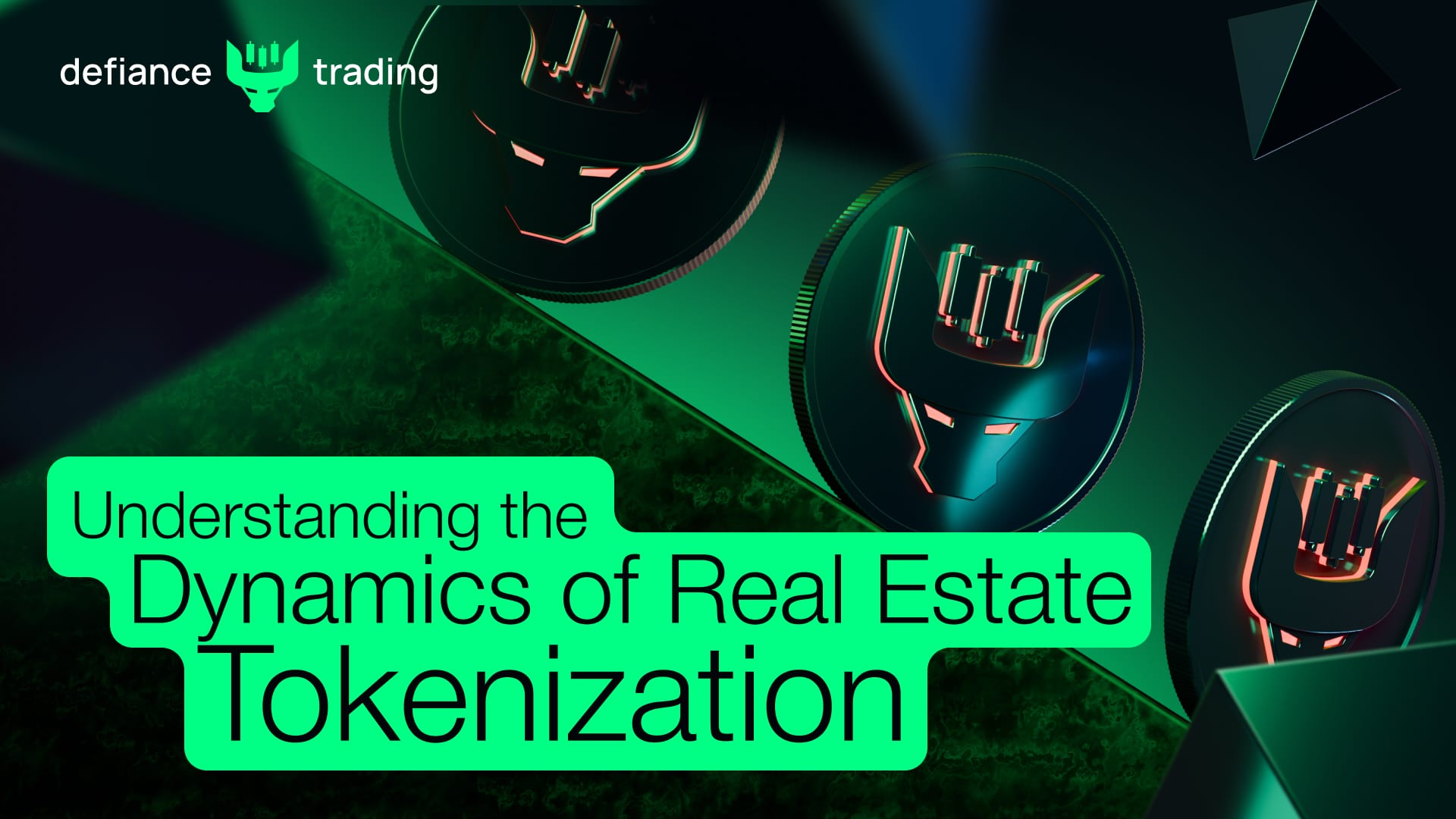Understanding the Dynamics of Real Estate Tokenization

By the end of 2025, experts estimate the real estate market will reach a $654.39 trillion market cap. This figure makes it one of the most valuable sectors worldwide, and in cryptocurrency it has gained recognition in the form of real estate tokenization.
Everyone interacts with real estate in one way or another. Some don’t even realize. Whether you work in an office, run a business, or live in a rented house, your hard-earned dollars — or otherwise—make the statistics.
However, this sector can improve on many fronts. Many people are barely involved in real estate aside from the roof over their heads. This fact cements the notion that it is a playground reserved for the rich. Other constraints include difficulties in finding a counterparty, transaction delays, and price fluctuations.
In this article, we’ll explore real estate tokenization, its regulation, securities, its benefits, unanswered questions, and players within the industry.
Let’s dive in!
What is real estate tokenization?
Real estate tokenization is a relatively new representation of ownership or investment in tangible assets as digital tokens. The tokens, fungible or non-fungible, allow more people to own properties in smaller sizes.
This democratic approach ensures adequate liquidity, transparent practices, and fewer intermediaries. Small investors can diversify their portfolios and engage in the timeless tradition of investing.
How is tokenized real estate regulated?
Yet again, the SEC’s crackdown on crypto comes in here. The tussle began in 2022 when the regulatory body clamped on crypto exchanges and projects, deciding to draw the boundaries of tokens. Are they securities? What are they? Their use in transactions means it requires defining how, when, and where to use tokens.
Fortunately, various companies have taken up strategies to navigate this terrain in real estate. Before crypto, a limited liability company could own a building, and investors buy units from this property. Family and friends could pool money to buy a block of apartments. This initiative was popular before the blockchain, so it aligns with regulation.
In addition, some companies take exemptions from the Securities and Exchange Commission (SEC). An example is Regulation D, which allows issuers to sell securities to a limited number of investors. The law does not attract an obligation to register offerings with the SEC. However, there are restrictions on how many people can buy, the status of the investor, and how the offering works.
What are the benefits of real estate tokenization?
Since the blockchain began to mingle with housing, it has done great in the following ways;
Reduction in barriers to entry
Nobody needs to spend whooping sums to get their hands on a piece of real estate. In some regions, the law requires a minimum down payment of 20%. This demand shuts many people out of the sector. Real estate tokenization helps enthusiasts to participate. It is no longer a game for the stupendously rich.
Reduced transaction costs
Breaking down a high-rise building into a thousand units will not change its price. However, the process involved in gaining ownership is made simple. A token embodies ownership and is transferable through smart contracts. Fulfilled transfer requirements trigger the entire deal. This blockchain-based solution coordinates business between mortgage companies, escrow, and property agents with minimal paperwork.
Improved price discovery
Today, market experts draw data from different sources to conclude property valuation. The data obtained can vary and highly skew the final valuation. Real estate tokenization breaks a single building into bits. The price tag for a unit gives more insights and justifies the value placed on the entire property.
What are the problems with real estate tokenization
Real estate has evolved with the Midas touch of the blockchain. Nevertheless, some problems still exist that pose concerns for spectators about tokenized real estate;
Mortgage financing
Several valid real estate laws disregard tokens as proof of ownership. There is no clear distinction between the jurisdiction of deed holders and token holders. Such ambiguity can complicate mortgage settlement and lead to court disputes.
Lack of Secondary Markets
A secondary market is a trading hub for investors, where they exchange existing securities. This activity usually excludes the issuing company. It is similar to what happens in stock exchanges worldwide.
Real estate tokens lack marketplaces where investors can trade off at will. This problem discourages people from investing. Liquidity providers are scarce, translating into low trading volumes. The result is price volatility that scares investors.
Data verification
Data is importantin real estate, and it defines the details of available properties. Since when did the building exist? How many social amenities surround it? Have renovations been made to date? What’s the history behind the property, and how does it impact value? The degrees of truth, reliability, and validity quicken transaction completion.
Some players in tokenized real estate
LoftyAI
LoftyAI owns properties, under a Limited Liability Company (LLC). All major decisions are under the discretion of its DAO. The DAO agrees on crucial steps to take about properties including repair works, changes in rent, and selecting a property manager. In an actual sense, every member of the DAO is an active manager. This setting doesn’t trump the need for an individual on-site to monitor comings and goings. Such a person becomes the eyes and ears of stakeholders on their investments. Legally, all processes run on smart contracts, which prevent corruption.
Vesta Equity
This startup is taking a unique approach to assist homeowners. They advertise equity in their properties to interested members of the public. This arrangement is made with the Home Equity Sharing Agreement. The homeowner can cash in on token sales. This fresh injection of liquidity can help them renovate and scale up the property to collect more rent. By holding the token, the equity investor has an interest in the future valuation of the property. If it appreciates some years later, the investor is in the green.
Vesta helps homeowners access the value of their homes without running into debt. The usual route for those who need to cash in on their asset is through equity loans or lines of credit. Lenders usually require the building as collateral, and any payment default can cause property seizure.
The homeowner reserves all rights to their property, and equity sharing doesn’t stop them from paying insurance or servicing a mortgage. However, they can’t sell the property below market value since it is not entirely up to them. An equity investor is a silent owner and has no right to live on the property. To fully own his property again, the equity provider must buy all equities.
Conclusion
Real estate tokenization opens the door for everyone to invest in buildings without years of saving. Investing is a norm, and blockchain opens it to everyone. Although regulation is anything but straightforward, companies in tokenized real estate have found ways to operate without flouting financial laws. It is still under review whether to consider real estate tokens as securities or not.
For now, we can only hope stakeholders address these areas to make real estate a truly democratic domain.
Visit our WEBSITE today for more updates!
Ready to Defy the Odds?
Become part of a growing movement
